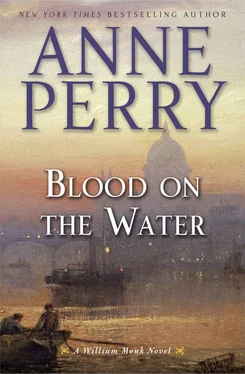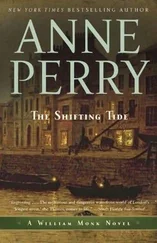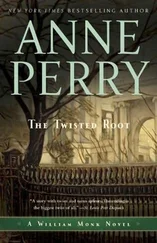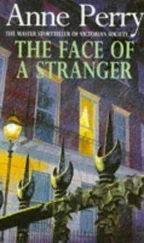Anne Perry - Blood on the Water
Здесь есть возможность читать онлайн «Anne Perry - Blood on the Water» весь текст электронной книги совершенно бесплатно (целиком полную версию без сокращений). В некоторых случаях можно слушать аудио, скачать через торрент в формате fb2 и присутствует краткое содержание. Год выпуска: 2014, ISBN: 2014, Издательство: Random House Publishing Group, Жанр: Исторический детектив, на английском языке. Описание произведения, (предисловие) а так же отзывы посетителей доступны на портале библиотеки ЛибКат.
- Название:Blood on the Water
- Автор:
- Издательство:Random House Publishing Group
- Жанр:
- Год:2014
- ISBN:978-0-345-54844-3
- Рейтинг книги:3 / 5. Голосов: 1
-
Избранное:Добавить в избранное
- Отзывы:
-
Ваша оценка:
- 60
- 1
- 2
- 3
- 4
- 5
Blood on the Water: краткое содержание, описание и аннотация
Предлагаем к чтению аннотацию, описание, краткое содержание или предисловие (зависит от того, что написал сам автор книги «Blood on the Water»). Если вы не нашли необходимую информацию о книге — напишите в комментариях, мы постараемся отыскать её.
Blood on the Water — читать онлайн бесплатно полную книгу (весь текст) целиком
Ниже представлен текст книги, разбитый по страницам. Система сохранения места последней прочитанной страницы, позволяет с удобством читать онлайн бесплатно книгу «Blood on the Water», без необходимости каждый раз заново искать на чём Вы остановились. Поставьте закладку, и сможете в любой момент перейти на страницу, на которой закончили чтение.
Интервал:
Закладка:
He increased his pace across to the warehouse entrance, his attention fully returned to this present robbery.
Hester did not find it easy to gain a seat in the gallery for the trial of Habib Beshara. After several failed attempts through the normal routes, she called on Rufus Brancaster, who had so ably defended Rathbone when he needed it. In pleading for volunteers or money to support the clinic in Portpool Lane, she was no longer abashed to state a case; but when asking a favor for herself she found it much harder. However, as it happened, Brancaster was both able and very willing to assist. He asked after Rathbone’s well-being with respect and some degree of feeling.
“He’ll hate missing this,” she said honestly. “That’s really why I’m here, so I can write and tell him what I see. But on the other hand, for years he has been wanting to travel with his father, and always changed his mind at the last moment, or had it changed for him. Do you know Mr. Henry Rathbone?”
“No,” Brancaster admitted. “But I have seen in Sir Oliver’s face how fond of him he is. And frankly, I think this case has become so political that it’s going to be something of a mess.”
She smiled agreement, but refrained from adding her opinion. She had said nothing to Monk about her sense of betrayal at the case having been taken from the River Police but only because she knew that would make it even harder for him to deal with. And perhaps also she was a little wiser in political matters than he, having tried so hard when she had returned from the Crimean War to alter some of the worst habits in nursing. She had had high ideals then, like her mentor, Florence Nightingale. Both of them had largely failed, learning lessons as to the power and immovability of the Establishment, especially where its vested interests were concerned. It still raised her anger to explosive levels, if she allowed it to, but she had long discovered that loss of temper more often damaged oneself than anyone else.
She thanked Brancaster warmly, and on the first day of the trial arrived in plenty of time to claim her seat.
The very first shock of the morning came with the arrival of the judge, before the case was even introduced. Hester was watching without particular interest when they were asked to rise and the judge entered, robed in scarlet and wearing the customary full-bottomed wig. As he took his seat in the high, carved chair and faced the court, she felt a stab of recognition so sharp as to be almost physical. It was Ingram York, the senior judge who had first favored Rathbone, then sought to destroy him.
He still had the same sheen of complacency on his broad face, but the lines of quick temper were deeper around his mouth than she remembered. To some he might look pleasantly avuncular, but to Hester he was a dangerous man, his loyalties ready to turn in an instant.
Thank heaven Rathbone was not here-or worse, involved in the case!
Who was? She turned to the defense table and saw a lean man. She realized he was of average height, although he looked taller at first glance, perhaps because of the elegance with which he rose to his feet, and gave a slight bow. It was impossible to tell the color of his hair beneath his obligatory barrister’s wig, but his skin and brows suggested it would be fair. His expression was unreadable. But then he was in an impossible situation. To satisfy the law, he must attempt to defend the indefensible. The court clerk addressed him as Mr. Juniver.
The prosecution was led by Sir Oswald Camborne. He was a thickset man, powerful, heavy-shouldered. His bushy eyebrows and the shadow around his broad jawline suggested dark hair, beginning to gray. At the moment he looked satisfied, and he had good cause.
Finally Hester made herself look up at the dock where the accused man sat, well guarded on either side by uniformed wardens. He was dark-skinned and his thick hair was black, gray at the temples. He appeared to be in his late forties, which she had not expected. Somehow she had imagined a younger, more fanatical-looking man. She could see no passion in his face, no fire at all. He looked more ill than frightened. It was hard to imagine that he had exacted such a terrible revenge on the people of a country he possibly hated. It seemed not to have brought him satisfaction. But then perhaps revenge never did.
At last the jury were sworn in and the proceedings began in earnest. Both prosecution and defense gave powerful and lengthy statements of their respective cases before Camborne called his first witness, a ferryman who had been on the river the night of the atrocity.
Hester found herself stiff, her hands clenched. This was where Monk should have testified. Would Juniver ask why he was not here? But then did any of this actually matter at all, or make any difference to the outcome? Or was it a charade to satisfy the law, so Beshara could be hanged and the public feel that justice had been accomplished?
The ferryman’s name was Albert Hodge. He stood uncomfortably in the high witness box above the floor of the court. He was an ordinary-seeming man, tired-looking and clearly a little frightened. His face was weathered from spending day and night in the open air, in all seasons. He wore what was probably his best coat. Even so, it strained a little across the breadth of his shoulders, which had been made powerful by a lifetime’s drag of the oars through the water, battling the current and the tides.
Camborne walked out into the middle of the floor, like an actor to center stage.
“Mr. Hodge,” he began smoothly, even sympathetically, “I’m sorry to ask you to relive what was probably one of the worst nights of your life, but you speak for all the brave men on the river that night who witnessed what happened, and worked until daylight and beyond, trying to rescue the drowning and bring back the bodies of the dead.”
Hester shivered. The emotion was already so highly charged in the room that she could feel it like a coming storm, heavy and churning with unspent electricity. In a few sentences Camborne had set the tone. Juniver must know that. If he tried to defuse it he would be guilty of seeming to diminish the tragedy, and that would be a fatal mistake.
Hodge began almost awkwardly, repeating himself and apologizing for it. He need not have; his simple language and obvious distress were far more affecting than any ease of vocabulary would have been.
In the gallery no one moved. There was just the occasional exhalation of breath and creak of a wooden seat.
As Hester listened to him speak, she heard Monk’s voice in her mind, saw him at the oars, straining his back to get to the drowning in time, peering through the darkness to see the white of a desperate face, the drift of a woman’s gown beneath the filthy water. She felt the helplessness Hodge tried to express, forgetting the present and the lawyers in their wigs and gowns, even oblivious of Ingram York presiding above them.
Hodge had worked all night, first receiving the desperate living, then hauling the tragic dead into his boat. Finally there were no more dead, only the shattered pieces of the boat.
When at last Juniver rose, he was facing hostility so strong it was palpable. It was unforgivable that anyone should try to excuse this or disregard the grief, and he had to know that.
Hester swallowed nervously, wondering what on earth he could say. Did he feel as lost, as overwhelmed as she did? From his face she could not tell. Even the way he stood revealed nothing.
“We thank you for your time and your honesty, Mr. Hodge,” Juniver began gravely. “The experience is beyond anything we know, but you have made it as real for us as anybody could.” He cleared his throat. “You have said there were others who struggled to save anyone they could reach at the time, and long into the night after that, to find the bodies and bring them ashore. Did that include the police, do you know?”
Читать дальшеИнтервал:
Закладка:
Похожие книги на «Blood on the Water»
Представляем Вашему вниманию похожие книги на «Blood on the Water» списком для выбора. Мы отобрали схожую по названию и смыслу литературу в надежде предоставить читателям больше вариантов отыскать новые, интересные, ещё непрочитанные произведения.
Обсуждение, отзывы о книге «Blood on the Water» и просто собственные мнения читателей. Оставьте ваши комментарии, напишите, что Вы думаете о произведении, его смысле или главных героях. Укажите что конкретно понравилось, а что нет, и почему Вы так считаете.












